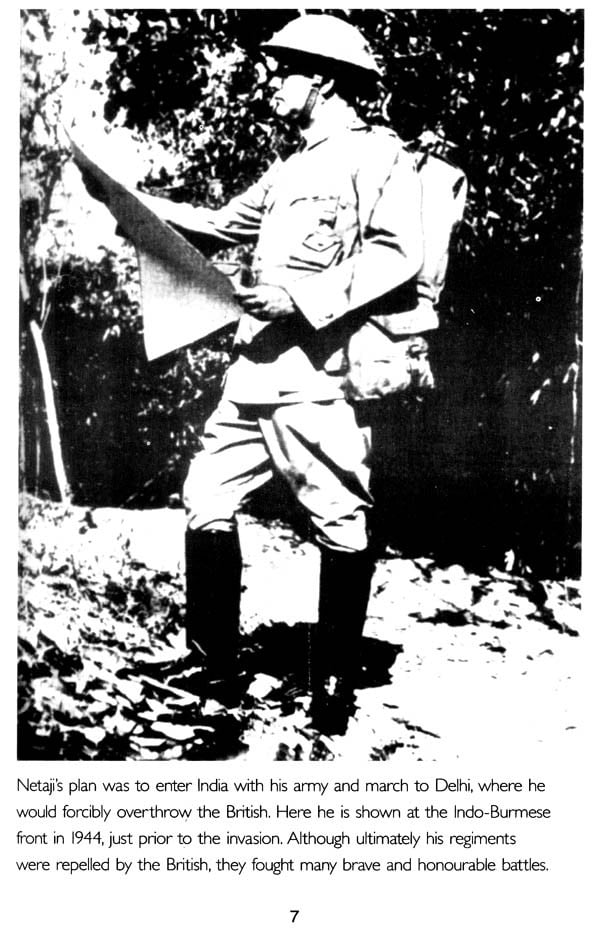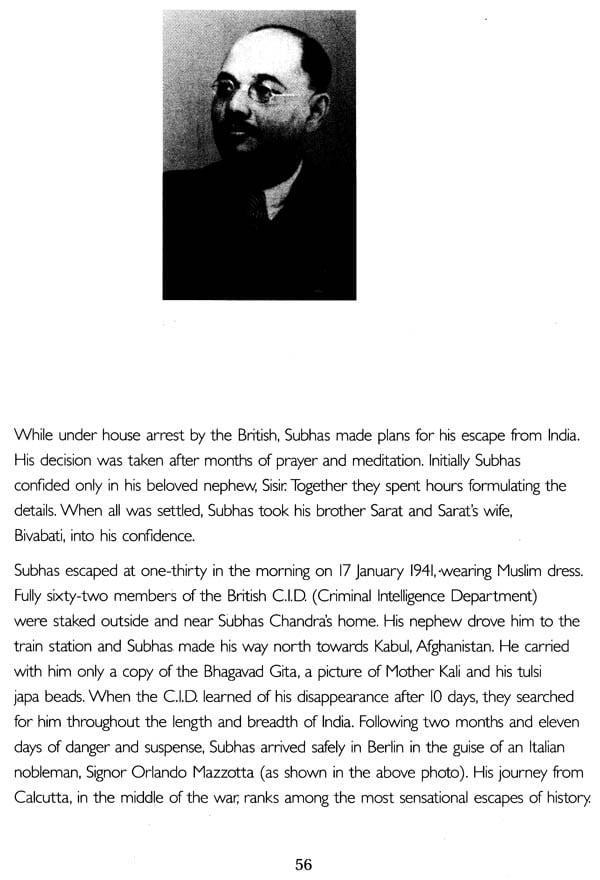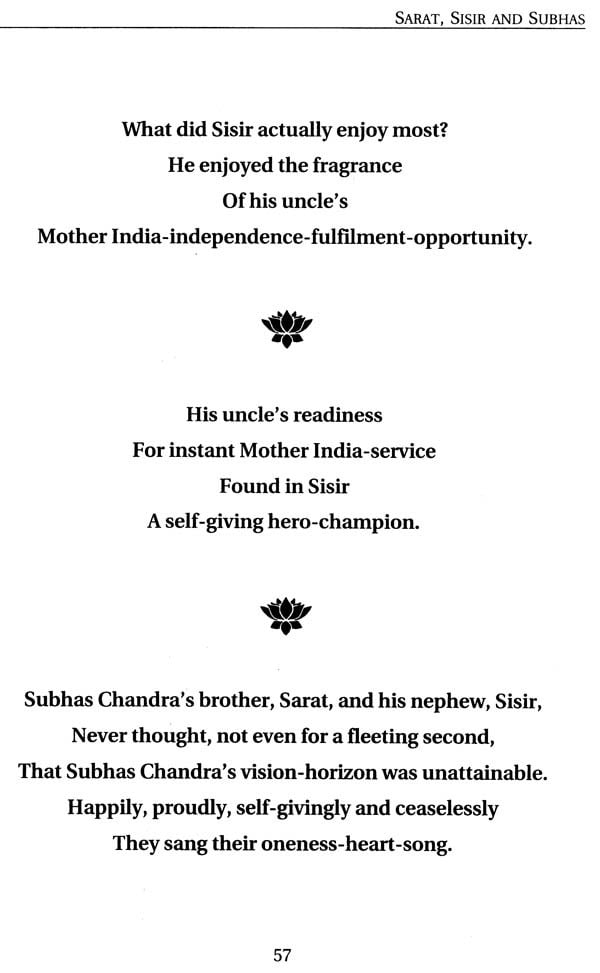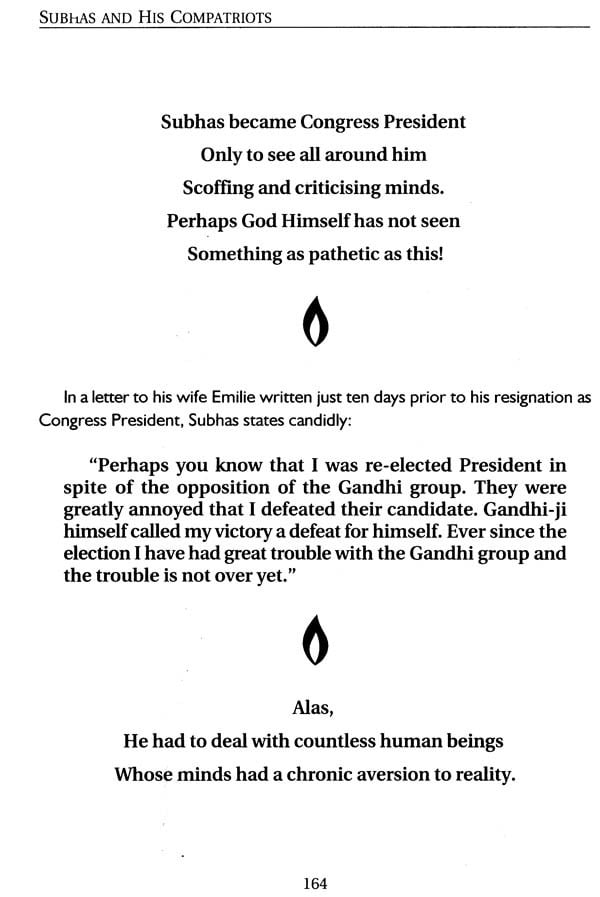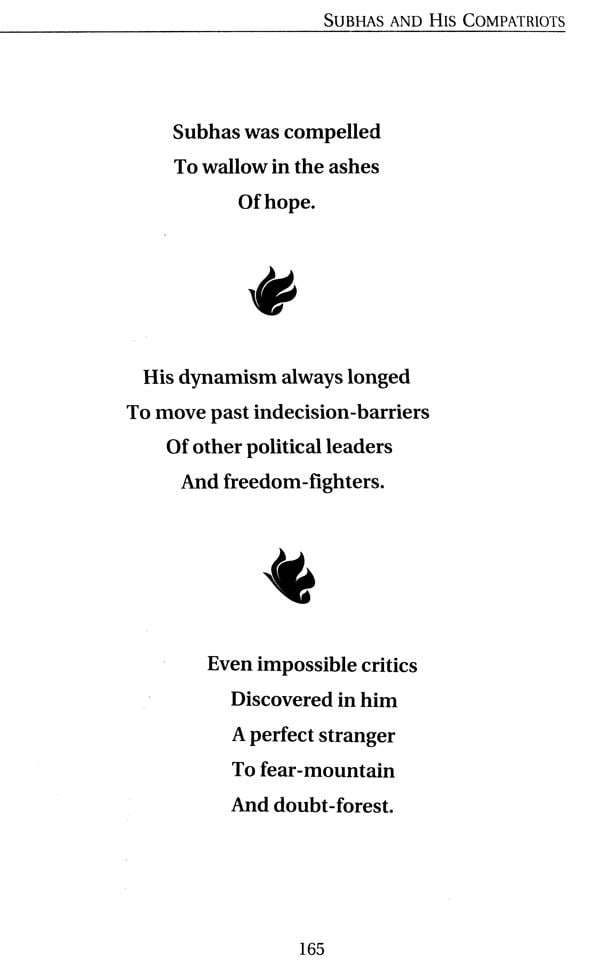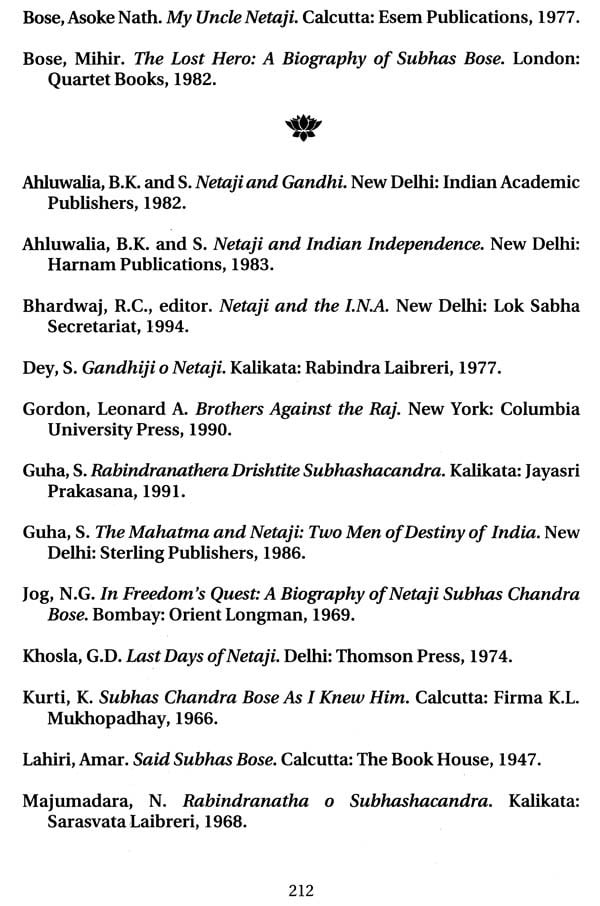
Mother Your 50th Independence Annyversary! I Am Come- Ever In Your Eternity's Cries And Your Infinity's Smiles, Subhas
Book Specification
| Item Code: | NBZ865 |
| Author: | Sri Chinmoy |
| Publisher: | Bharatiya Vidya Bhavan |
| Language: | English |
| Edition: | 1997 |
| Pages: | 230 (Throughout B/w Illustrations) |
| Cover: | PAPERBACK |
| Other Details | 10.50 X 8.50 inches |
| Weight | 820 gm |
Book Description
'Jai Hind' was Netaji's soul-stirring clarion-call with which he roused the nation to ecstatic patriotic heights.
Historians are yet to make a proper assessment of Netaji's role in India's Pilgrimage to Freedom.
Subhas Chandra Bose was born on January 23, 1897. After graduation, he sailed for England to study for the "Heaven born" Indian Civil Service Examination. He came out fourth in the Examination.
Soon after returning to India in 1921, Subhas met Mahatma Gandhi in Bombay and on his advice contacted Deshbandu Chittranjan Das. Both Das and Subhas were since arrested and detained by the British. Subhas was to be detained 11 times during the next 20 years.
Subhas became the President of the Bengal Provincial Congress Committee in 1929 and vigorously campaigned for India's complete Independence. He was in the thick of Salt Satyagraha of 1930 launched by Gandhi. He was unanimously elected the President of the Indian National Congress at Haripura in Gujarat in 1938. Though he was re-elected as President of the Congress at Tripura in Central Province in 1939, following political 'man oeuvre' and the 'subtle' curtailment of his powers, Subhas resigned from the President ship before completing his term.
In 1940, Subhas escaped from house-arrest and left India incognito to continue India's war of Independence. He founded the Indian Liberation Army in Germany in 1941 by recruiting Indian prisoners of war.
In 1943, etui moved to East Asia and became Supreme Commander of the Azad Hind Fauj (Indian National Army). The Army, marched towards the homeland with delirious battle series of "Jai Hind" and "Chalo Delhi", crossed the Burma Frontier and reached Kohima and Imphal.
On August 22, 1945, Tokyo radio announced Netaji's death in an air crash in Formosa on August 18, 1945, enrooted to Japan.
II
Chapter Five of the Book entitled "Mahatma & Netaji" is a masterly depiction of candor and conviction. They both held each other in very high esteem. It was Netaji, who first hailed Gandhi as "Father of the Nation" and sought his blessings for success in his efforts. He did so in a broadcast to the Indian nation while launching the INA.
needless to say, Mahatma and Netaji were totally dedicated, utterly unselfish patriots of the highest order. Their political goal was Puma Swaraj, but they had different perceptions about how freedom's battle was to be fought expeditiously and successfully. Gandhi and Netaji in their own way decisively helped hasten the advent to Indian Independence.
In dealing with complex national issues such differences, even among the high-soled, are not uncommon. But they will neither attribute motives nor harbor malice towards each other.
This is the hall-mark of the truly great, to which rare category both Gandhi and Subhas Babu belong. It is a truism that it is not given to any two people to agree on all matters. In fact, if all people think in the same way, this world would be as silent as a graveyard.
Book's Contents and Sample Pages


